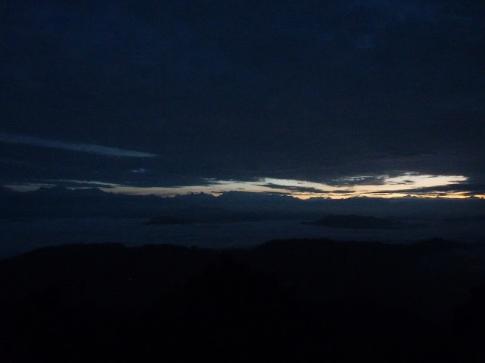On A Dream

Bright star, would I were stedfast as thou art— Not in lone splendour hung aloft the night...
John Keats
On A Dream
As Hermes once took to his feathers light
When lulled Argus, baffled, swoon'd and slept,
So on a Delphic reed my idle spright
So play'd, so charm'd, so conquer'd, so bereft
The dragon-world of all its hundred eyes,
And, seeing it asleep, so fled away:
Not to pure Ida with its snow-cold skies,
Nor unto Tempe where Jove griev'd a day;
But to that second circle of sad hell,
Where 'mid the gust, the whirlwind, and the flaw
Of rain and hail-stones, lovers need not tell
Their sorrows. Pale were the sweet lips I saw,
Pale were the lips I kiss'd, and fair the form
I floated with, about that melancholy storm.
Bright star
Bright star, would I were stedfast as thou art—
Not in lone splendour hung aloft the night
And watching, with eternal lids apart,
Like nature's patient, sleepless Eremite,
The moving waters at their priestlike task
Of pure ablution round earth's human shores,
Or gazing on the new soft-fallen mask
Of snow upon the mountains and the moors—
No—yet still stedfast, still unchangeable,
Pillow'd upon my fair love's ripening breast,
To feel for ever its soft fall and swell,
Awake for ever in a sweet unrest,
Still, still to hear her tender-taken breath,
And so live ever—or else swoon to death.
Sonnet. The Human Seasons
Four Seasons fill the measure of the year;
There are four seasons in the mind of man:
He has his lusty Spring, when fancy clear
Takes in all beauty with an easy span:
He has his Summer, when luxuriously
Spring's honied cud of youthful thought he loves
To ruminate, and by such dreaming high
Is nearest unto heaven: quiet coves
His soul has in its Autumn, when his wings
He furleth close; contented so to look
On mists in idleness—to let fair things
Pass by unheeded as a threshold brook.
He has his Winter too of pale misfeature,
Or else he would forego his mortal nature.




 del.icio.us
del.icio.us Digg
Digg

Post your comment